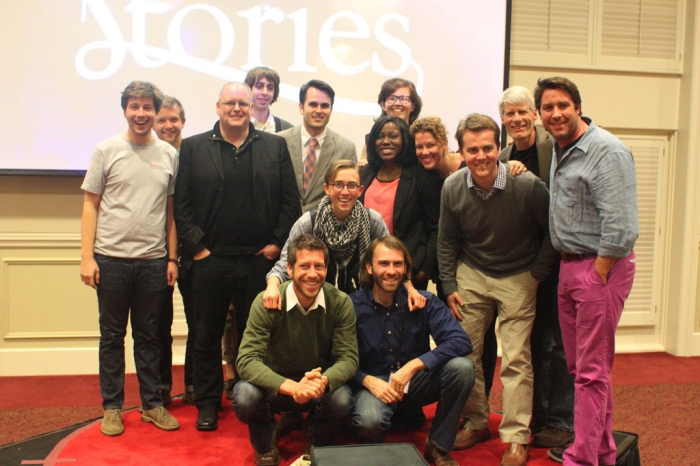
Since its creation in 1984, the TED non-profit organization has become well-known for producing online videos of talks delivered at an annual academic conference in southern California and has spread its format to conferences around the globe.
Under the leadership of members of the Furman Creative Collaborative, Furman University will soon be hosting its second TED conference, called TEDx because the conference is independently organized, on March 22.
TED is an acronym for technology, education, and design, and national conferences take place in Long Beach and have illustrious speakers from wide-ranging backgrounds, from politicians like Bill Clinton and Al Gore to inventors like Bill Gates and even musicians like Bono. This year campus speakers will include Furman student Luke Christie and the former editor-in-chief of Tumblr, Chris Mohney.
The theme for this year’s conference is “Stories: The Common Thread of Our Humanity,” and members of the FCC have been organizing and planning for the second annual TEDx event for the majority of this school year. The Paladin recently spoke with FCC members Sam Klein, A.J. Calhoun, and Will Clark about what students can expect at this year’s conference.
The Paladin: Sam, for those who do not know what TEDx is, could you give us a quick description?
Klein: The purpose of a TEDx conference is to present new ideas and ways of thinking about those topics. The “x” just means that it is an independently organized event, like the one that we’re putting on.
P: What all goes into the planning of a TEDx conference?
Klein: It’s a pretty long process that involves first doing a lot of brainstorming about who we should invite to speak at the conference. We compile a pretty big list of names because we realize that not everyone we ask will be able to come. There are also acts that go on in between speakers, and we ideally like to use local performers. Last year, we had the Bell Tower Boys sing for one of those performances as well as a local improv group from Greenville. There are also activities that we come up with in order to get people to critically engage with the ideas that they’re hearing as well as engaging with one another as participants in the conference. Those are just a couple things that go into the planning process.
P: What are you changing for the conference this year?
K: Last year went very well, especially considering that it was our first time organizing an event of that scale. This year, the conference is going to be bigger, so we have moved to a more accommodating venue [the Peace Center’s Gunter Theater]. The biggest thing that we are focusing on in terms of improving from last year to this year is just the preparation for the actual event so that we can avoid any hiccups during the event.
P: What can you say about this year’s theme?
Clark: First and foremost, we wanted to put on a conference that we would want to attend. We figured that if it were something that interested us, it would interest other people too. We love stories. Who doesn’t? Everyone tells stories, everyone knows stories, and stories are an integral part of everyone’s lives, whether we always acknowledge it or not. Last year’s conference was about redesigning education, and while we had a lot of great speakers, it was a very narrow subject matter. With stories, we knew that we had a broader theme that would allow for a greater variety of speakers.
More information about this year’s conference is available online at tedxfurmanu.com.
